United Nations
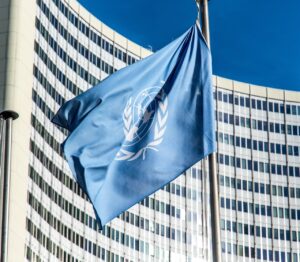
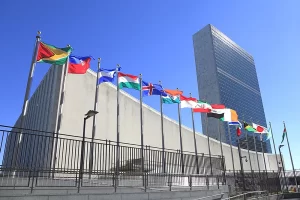 On October 24, 1945, the United Nations Charter, adopted and signed on June 26, 1945, came into effect. The United Nations (UN) emerged from a “perceived” need for a mechanism superior to the League of Nations in arbitrating international conflicts and negotiating peace. The escalating Second World War prompted the United States, Britain, and the Soviet Union to draft the initial UN Declaration, which 26 nations signed in January 1942 as an official stance against the Axis Powers of Germany, Italy, and Japan. It all seemed like a good idea, and perhaps was drafted with good intentions, but it is my opinion that the UN has failed miserably to accomplish any of the goals it set out to achieve.
On October 24, 1945, the United Nations Charter, adopted and signed on June 26, 1945, came into effect. The United Nations (UN) emerged from a “perceived” need for a mechanism superior to the League of Nations in arbitrating international conflicts and negotiating peace. The escalating Second World War prompted the United States, Britain, and the Soviet Union to draft the initial UN Declaration, which 26 nations signed in January 1942 as an official stance against the Axis Powers of Germany, Italy, and Japan. It all seemed like a good idea, and perhaps was drafted with good intentions, but it is my opinion that the UN has failed miserably to accomplish any of the goals it set out to achieve.
The foundational principles of the UN Charter were initially shaped during the San Francisco Conference, which began on April 25, 1945. This conference established the framework for a new international organization intended to “save succeeding generations from the scourge of war, to reaffirm faith in fundamental human rights, to establish conditions under which justice and respect for the obligations arising from treaties and other sources of international law can be maintained, and to promote social progress and better standards of life in larger freedom.” The Charter further outlined two additional vital goals. They were to maintain the principles of equal rights and self-determination for all peoples…initially intended to safeguard smaller nations at risk of being overtaken by the larger Communist powers emerging after the war, and to promote international collaboration to tackle worldwide economic, social, cultural, and humanitarian issues.
Following the war’s end, the responsibility of negotiating and maintaining peace was assigned to the newly established UN Security Council, which included the United States, Great Britain, France, the Soviet Union, and China. Each member possessed veto power. Winston Churchill implored the United Nations to employ its charter to promote a new, united Europe…a unity characterized by its opposition to communist expansion in both the East and the West. Yet, given the composition of the Security Council, achieving this proved more challenging than anticipated. I suppose that the distain felt by many people, for the United Nations, could have arisen from an impossible task, but more likely it came from flawed people who placed their own agenda ahead of the real needs of the people.
The United Nations is subject to criticism for a variety of reasons, including its policies, ideology, equality of representation, administrative practices, enforcement of decisions, and perceived ideological biases. Critics often cite a lack of success within the organization, noting failures in both preventative measures and in de-escalating conflicts ranging from social disputes to full-blown wars. Additional criticisms involve accusations of antisemitism, appeasement, collusion, promotion of globalism, inaction, and the exertion of undue influence by 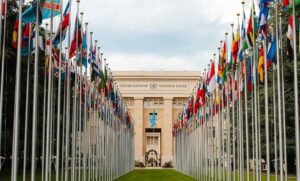
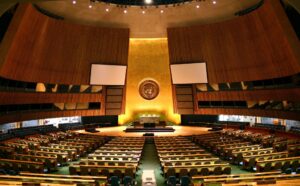 powerful nations within the General Assembly, as well as corruption and misallocation of resources. In my opinion, and that of many other people, that the UN should be dissolved, or at the very least, that the United States should withdraw and expel the United Nations from this nation. While some may disagree, this is my viewpoint.
powerful nations within the General Assembly, as well as corruption and misallocation of resources. In my opinion, and that of many other people, that the UN should be dissolved, or at the very least, that the United States should withdraw and expel the United Nations from this nation. While some may disagree, this is my viewpoint.
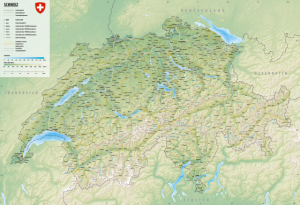 I think most of us know that a conscientious objector is a person who feels strongly about not killing…even in a war. However, there are actually entire countries who believe that way…or almost. The most well known country to claim neutrality is Switzerland. Other countries to claim non-interventionist stances include Ireland, Austria, and Costa Rica, but Switzerland is remains the oldest and most respected of them all. In fact, Switzerland has been in a state of perpetual neutrality for centuries. This state of neutrality does not mean they do not have an army, because they do. The country maintains an army for defense purposes and requires part-time military service from all males between the ages of 18 and 34. So how did this state of perpetual neutrality come about, and what does it mean exactly?
I think most of us know that a conscientious objector is a person who feels strongly about not killing…even in a war. However, there are actually entire countries who believe that way…or almost. The most well known country to claim neutrality is Switzerland. Other countries to claim non-interventionist stances include Ireland, Austria, and Costa Rica, but Switzerland is remains the oldest and most respected of them all. In fact, Switzerland has been in a state of perpetual neutrality for centuries. This state of neutrality does not mean they do not have an army, because they do. The country maintains an army for defense purposes and requires part-time military service from all males between the ages of 18 and 34. So how did this state of perpetual neutrality come about, and what does it mean exactly?
The earliest attempt by Switzerland, at neutrality came in 1515 when the Swiss Confederacy suffered a devastating loss to the French at the Battle of Marignano. After that, the country abandoned any thought of expanding it’s borders in an attempt to avoid future conflict. All this was done in the interest of self-preservation. The Napoleonic Wars, however, truly sealed Switzerland’s place as a neutral nation. Switzerland was invaded by France in 1798 and was later made a satellite of Napoleon Bonaparte’s empire, forcing it to compromise its neutrality. Napoleon was defeated, and the major European powers decided that a neutral Switzerland would provide a much needed buffer zone between France and Austria. It was assumed that their neutrality would bring stability to the region. Then during the 1815 Congress of Vienna, a declaration was signed affirming Switzerland’s state of “perpetual neutrality” within the international community. In 1920, the newly formed League of Nations officially recognized Swiss neutrality and established its headquarters in Geneva.
Switzerland’s state of perpetual neutrality has not been without it’s challenges. In World War I, it mobilized its army and accepted refugees but also refused to take sides militarily. An even bigger challenge to Switzerland’s neutrality came in World War II, when the country was surrounded by Axis powers. Switzerland continued in its neutral stance, saying that they would retaliate in the event of an invasion, but would not enter the war. Nevertheless, they continued to trade with Nazi Germany, a decision that caused controversy after the war ended.
After World War II, Switzerland has been active in international affairs by siding with humanitarian initiatives, while maintaining its neutrality when it came to military issues.  Switzerland refuses to join NATO or the European Union, and only joined the United Nations in 2002. In my opinion it might as well have stayed out of the United Nations entirely. I understand the desire to stay neutral and out of wars, but to me it seems a little bit like walking the fence. They want the good that’s offered without having to hold the evil nations accountable for their actions. I realize the Switzerland has done things for the rest of the world, but it still seems like a bit of a cop out when their trade is not affected because they refuse to argue the evil that some nations do.
Switzerland refuses to join NATO or the European Union, and only joined the United Nations in 2002. In my opinion it might as well have stayed out of the United Nations entirely. I understand the desire to stay neutral and out of wars, but to me it seems a little bit like walking the fence. They want the good that’s offered without having to hold the evil nations accountable for their actions. I realize the Switzerland has done things for the rest of the world, but it still seems like a bit of a cop out when their trade is not affected because they refuse to argue the evil that some nations do.

